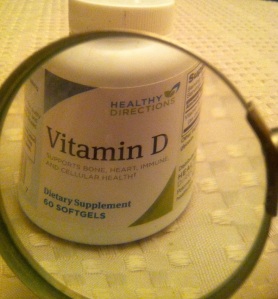 With sales totaling more than $20 billion last year, dietary supplements are big business in the United States. With 80 percent of American adults using supplements, it is not surprising that the industry, with uneven regulation, has come under scrutiny over the years in the name of consumer health. A new, government analysis of weight loss and immune system supplements—quickly growing segments of the market—gives more reason to be concerned about the non-prescription pills we’re popping for our health.
With sales totaling more than $20 billion last year, dietary supplements are big business in the United States. With 80 percent of American adults using supplements, it is not surprising that the industry, with uneven regulation, has come under scrutiny over the years in the name of consumer health. A new, government analysis of weight loss and immune system supplements—quickly growing segments of the market—gives more reason to be concerned about the non-prescription pills we’re popping for our health.
On Wednesday, the inspector general of the Department of Health and Human Services (DHHS) released a report stating that many products on the supplement market are illegally labeled, and even more lack the scientific evidence to support their purported health claims.
The DHHS found that 20 percent of 127 dietary supplements marketed for weight loss or immune system-support made illegal claims to treat diseases. Seven percent lacked the necessary disclaimer stating that the Food and Drug Administration (FDA) had not evaluated whether the product claims were true.
 According to the FDA, a supplement label cannot say it treats a specific disease, but it can claim to benefit a disease or support general well being. For example, a supplement cannot say it “aids joint health to treat arthritis” but it can say it “promotes healthy flexible joints.” A few examples of the illegal claims presented in their review include:
According to the FDA, a supplement label cannot say it treats a specific disease, but it can claim to benefit a disease or support general well being. For example, a supplement cannot say it “aids joint health to treat arthritis” but it can say it “promotes healthy flexible joints.” A few examples of the illegal claims presented in their review include:
• To cure a cough and chest problems…
• Provides defense against heart disease, blood pressure, diabetes…
• Contains natural cancer fighters, boosts immune system…
“Supplements that make disease claims could mislead consumers into using them as replacements for prescription drugs or other treatments for medical conditions, with potentially dangerous results,” the report cautioned.
Though the scientific evidence required of supplement manufacturers must be “competent and reliable,” with claims that are “truthful and not misleading,” the FDA does not require manufacturers to submit this information.
“When it comes to proof, supplement makers are only required to say research has been done,” said medical correspondent Dr. Jonathan Lapook on Wednesday night’s “CBS Evening News with Scott Pelley.”
Federal law classifies supplements as food, not drugs. The FDA lacks the authority to review supplement claims before products enter the market. Once supplements are on the shelves, the FDA can monitor their safety.
More than half of the manufacturers in the study voluntarily submitted substantiation documents when asked to do so. “Of the 34 percent of substantiation documents that were human studies, none met all of FDA’s recommendations for competent and reliable evidence,” the report said.
Of the 127 supplements investigated, Lapook said, “None—none—met all of the FDA’s recommendations for proving the products actually work.”
 As a result, the department made recommendations for the FDA to gain explicit authority to review the health claims made by supplement companies. The FDA agreed to recommendations for expanding market surveillance to detect claims specifically treating disease and to enforce the use of disclaimers when health benefits are cited.
As a result, the department made recommendations for the FDA to gain explicit authority to review the health claims made by supplement companies. The FDA agreed to recommendations for expanding market surveillance to detect claims specifically treating disease and to enforce the use of disclaimers when health benefits are cited.
The Natural Products Association (NPA), the leading trade association representing natural products and the dietary supplement industry, was quick to downplay the significance of the report by the DHHS.
“More than half of all Americans take dietary supplements safely and effectively as part of a healthy lifestyle,” said Mike Keaton in a press release. “The Office of Inspector General reviewed just 127 supplements out of an estimated 29,000 products on the market. This small sample of supplements shouldn’t smear the entire industry.”
However, the NPA also supports and recognizes the importance of having accountability in the supplement industry. “NPA has been steadfast in supporting increased resources for the FDA,” said Keaton. “The FDA should streamline the notification process and expand market surveillance, and we encourage the FDA to take swift and appropriate action against those who have shown a blatant disregard for the law.”
Leave a Reply